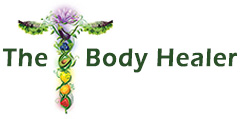Baby's First Food
Breast Milk - The Perfect First Food

During pregnancy, hormones trigger the changes that cause the body to produce breast milk to prepare for when a baby is born.
Breast milk is the ultimate baby food that contains the absolute perfect combination of nutrients. It does not require cooking, measuring, or preparation. And guess what - it's free!! There are no groceries to buy, and no bottles to prepare and wash. It does not deteriorate and sit in a bottle to possibly contaminate. It is not stored in a bottle (some of which contain a chemical in the plastic called BPA which is a toxic carcinogen). It never has to be warmed or cooked and its nutrients and enzymes have not been destroyed by pasteurization. On top of that, studies point to lower risks of breast and ovarian cancers for nursing mothers.
Can it get any better? Yes, it can! There is another critical reason that breast milk is the perfect first food for newborns, and it's called colostrum.
| Liquid Gold - Colostrum!
Breast milk is chock full of specialty ingredients that are very important for a growing baby. During the first few days after birth, breast milk contains something very special called colostrum. Colostrum is thicker than regular milk, and has a yellowy color. Also known as "liquid gold," colostrum is full of antibodies, immunoglobulins, and leukocytes (protective white cells that destroy dangerous bacteria and viruses). It acts as a natural vaccine against bacteria, helping your baby's immune system to develop properly. Newborn babies have not yet developed their own immune system, and this first milk is full of antibodies that help your baby develop a strong and healthy immune system.
The live white blood cells in colostrum also help protect the baby's bowels from inflammation, and the laxative effect of colostrum helps newborns pass their first stools. Colostrum also contains lots of oligosaccharides and probiotics that are not found elsewhere (such as in formula milk). In short, all newborns need colostrum. Those that do not receive it are much more susceptible to digestive disorders and infections. Over a period of 1-2 weeks from birth, colostrum production slowly and naturally decreases until only regular breast milk is produced. |
From birth to 6 months, all your baby needs is breast milk. As a perfect food, it is nutritionally balanced and requires no supplementation. Besides, a baby's digestive tract is developing and not yet ready for solid food. A caveat to this is mothers who themselves may be chronically deficient in some nutrients. Vegetarian and vegan moms and raw foodists who have not educated themselves on the healthy approach to their dietary choice are especially at risk of giving birth to a child with nutritional deficiencies, and producing breast milk that lacks the necessary nutrition a growing baby needs. This does NOT mean that a vegetarian, vegan, or raw food diet has nutritional deficiencies - far from it! Those who have educated themselves on the right approach to their dietary choice are shining, healthy examples of vibrant human beings.
It is common for babies to lose a little weight immediately after birth, and then settle into a pattern of gaining around a pound a month. Consult your pediatrician if you have any concerns about noticeable weight loss.
Breast Feeding Challenges
 Even though breast feeding is very natural, it can be challenging in the beginning for some new moms. It can also feel surprisingly unnatural! Anxiety, cracked and/or sore nipples, sore breasts, fears about not producing enough milk, and sometimes an inability to get into a comfortable position can be very frustrating.
Even though breast feeding is very natural, it can be challenging in the beginning for some new moms. It can also feel surprisingly unnatural! Anxiety, cracked and/or sore nipples, sore breasts, fears about not producing enough milk, and sometimes an inability to get into a comfortable position can be very frustrating.
The most important advice to moms is to not give up. Most challenges resolve themselves. If you need help, never hesitate to reach out and consult a lactation specialist or maternity nurse for advice. If nipples become sore or cracked, apply a 100 percent lanolin cream (however, if you see any signs of infection, see your doctor).
Producing Enough Breast Milk
As a baby grows, breast milk secretion gradually increases to support its growing needs. Several factors can affect mom's ability to produce enough breast milk:
- During breast feeding, alternate each breast and wait until the breast is completely emptied. This is the best way to increase milk flow because when the breast is completely emptied, milk flow is increased. If they are not emptied each time, milk flow gradually decreases. Taking a break from nursing out of frustration or exhaustion can also signal the body to reduce milk flow.
- Mom's emotional state can also impact milk flow. Worry, fear, anger, grief, and other emotions can slow down or temporarily suspend milk production.
- A diet deficient of important minerals such as from fresh green vegetables (especially raw veggies that we eat in salads) and other whole foods can place a strain on the calcium resources of our bodies, which in turn can reduce the ability to produce breast milk. Anything eaten by mom will also affect the quality of breast milk, including drugs (prescription or otherwise) and alcohol. Seemingly benign things such as aspirin and laxatives will do the same, which in turn can also affect the temperament of your baby.
Despite their best efforts, some moms find it difficult to produce enough milk and become disheartened and anxious. If you are struggling, don't despair! Instead, reach out for guidance and support. A few tips and tricks from nurses and lactation specialists can mean the difference between breast feeding success and failure.
Excuses to Not Breast Feed
Don't make them. Deciding not to breast feed your child is a decision that should never be taken lightly. Unless you have a medical condition that prevents you from breast feeding your child, there IS no good reason not to do it. Please become educated on the possible health consequences you may be needlessly subjecting your child to.
Why breast feeding is important...
When Breast Feeding Is Not Possible
Sometimes, breast feeding is not an option such as when a baby is adopted, or needs to be cared for by other family members or friends. Health conditions such as hypoplastic breasts or a mastectomy can prevent breast feeding. Hormonal imbalances can also make milk production irregular.
If this is the case, know the health consequences of feeding your baby pasteurized cow's milk. Many studies have been conducted showing that babies fed with pasteurized milk suffer from more sickness, infections, and allergies than those fed breast milk and unpasteurized milk. Contrary to the belief of some (and the irrational bantering by anti-raw milk groups), unpasteurized milk is NOT more dangerous to consume than pasteurized dairy. In fact, the exact opposite has been proven to be true. ...Read about the studies
- Since 1999, over 40 million servings of Organic Pastures raw milk has been produced with not one reported illness.
- 19 recalls of pasteurized milk products occurred during that same period.
Raw milk is a wonderful option, and is now available in several states from supermarkets, health food stores, and direct from local farms. If you do not live in one of these states, check out your local health food store and do mot hesitate to ask about local reputable farms for unpasteurized milk. Farmers markets are also a great source of information.
Arizona  California
California  Connecticut
Connecticut  Idaho
Idaho  Maine
Maine  New Hampshire
New Hampshire
New Mexico  Pennsylvania
Pennsylvania  South Carolina
South Carolina  Washington
Washington
Benefits of raw milk as a "first-food" alternative...
Regardless of whether you choose raw or pasteurized milk, please make sure you NEVER feed your baby soy milk. Not only is it dangerous for their health, but it is also banned or strongly cautioned against in some countries.
Why you should NEVER feed a baby soy milk...
A Word About Plastic Bottles & Containers
|
If you choose to bottle-feed your baby, make sure that the bottles have the "BPA-free" stamp. BPA (bisphenol-a) is a dangerous chemical found in many plastic containers that cause estrogen-like effects and disrupt our hormonal system. Never use plastic products containing BPA for your baby. This chemical is also found in some pacifiers. Look for the BPA-free stamp on all plastics you buy.
When cleaning bottles, avoid sterilizing them with harmful chemical products. Simply clean them with white vinegar and boiling water.
 Learn more about the dangers of common household cleaners
Learn more about the dangers of common household cleaners& how to build your own non-toxic cleaning cabinet:
The Body Healer Protocol...
Studies show that microwaving raw or breast milk, even at a low setting, can destroy some of its important disease-fighting capabilities. Milk heated between 72°C and 98°C loses 96% of its immunoglobulin-A antibodies (the antibodies that fend off invading microbes).
- In the April, 1992 issue of Pediatrics, Pediatrician Dr. John A. Kerner, Jr. and his Stanford University co-workers reported that breast milk that was microwaved lost lysozyme activity, antibodies, and fostered the growth of more potentially pathogenic bacteria.(1)
- Chemist Dr. Lita Lee, Ph.D. states: "Microwaving baby formulas converted certain trans-amino acids into their synthetic is-isomers. Synthetic isomers, whether they are amino acids or trans fatty acids, are not biologically active. Further, one of the amino acids, L-proline, was converted to its d -isomer, which is known to be neurotoxic (poisonous to the nervous system) and nephrotoxic (poisonous to the kidneys). It is bad enough that many babies are not nursed, but now they are given fake milk (baby formula) made even more toxic via microwaving."(2)
What microwaving does to food & your body...
Enough Rest & Sleep
A baby fed the right amount food and not overfed will be much more likely to sleep soundly. Many natural healthcare practitioners feel that newborn infants should be allowed to sleep and waken naturally. There is no reason to impose some sort of rigid feeding and sleeping schedule on a newborn. If a baby sleeps past what you want to be feeding time, then let them sleep. When your baby wakes up, then begin the feeding.
As time progresses, gently begin to introduce a routine and more consistency.
Nix the "Overs"
It can be tempting to constantly want to coddle your baby, but remember that infants are not playthings. Pay attention to the "overs" which can not only affect their digestion, but also a baby's temperament.
Overfeed - Overexcite - Overhandle - Overheat - Overbathe - Overclothe
RELATED ARTICLES
- Why kids are getting sicker & fatter
- Before birth - prenatal care
- Baby's first food
- Beginning solid food
- Healthy eating guide for children
- Why breast feeding is important
- Bone broth
- Pasteurized vs. raw dairy
- The health benefits of raw milk
- The importance of organic during pregnancy
- Serious dangers of pesticides in our food
- Vaccinations & children
- Healthy, strong teeth
- Tips on raising happy & healthy children
- Nurturing creativity & individuality
- Discipline & setting boundaries



